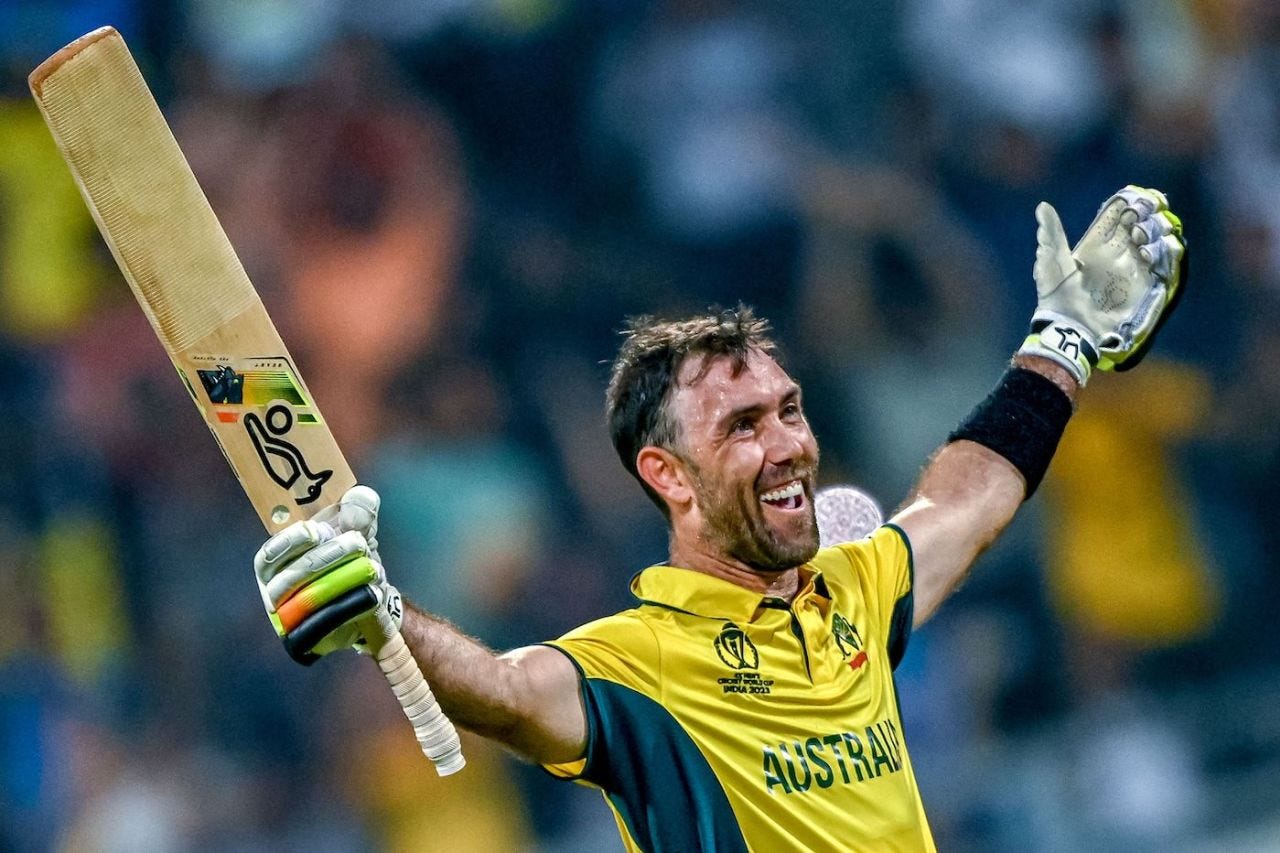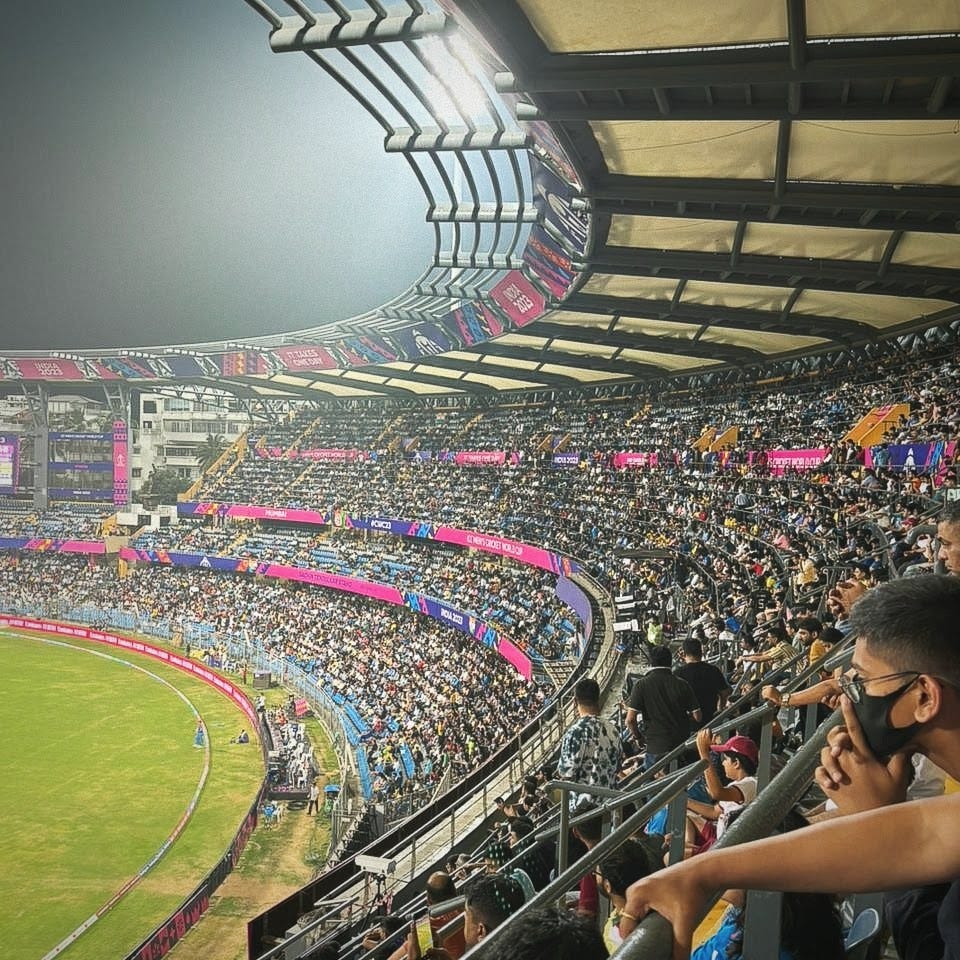Maxwell's Silver Hammer
What is an experience after all? It has to be something that influences your life or a decision you make, contributing to the path you may end up taking. Experiences shape your perceptions. There must be hundreds of different ways you can define the term "experience" with your philosophical reflections or personal anecdotes. But at the end of the day, you lived through that experience, and it will be with you forever. You may want to keep remembering it at every chance you get, bring it up in every discussion you have over coffee, or discuss it in debates. Alternatively, you may not want to remember it at all. However, your desire to keep it alive for the rest of your life or to suppress it will never change the fact that it was indeed an experience you lived through.
The question often poses itself. What are we here for? What's the point of it all? I happened to stumble upon a video on Twttr where the objective was to explain the anatomy of the human brain. For the first 7 seconds it was a gruesome sight. A pink lump of curly flesh, almost like intestine wrapped up in a polythene bag, with thickest of blood oozing out when cut open. Nothing more, nothing less. Or was it? I scrolled through the replies, it got deeper. There was a whole person with memories, hopes, dreams, fears, emotions, experiences and personality in there for years before just becoming a lump of nothing to cut like meat. And deeper.
That brain lived through moments. Lived through experiences.
I have one too.
Oct-Nov 2023. This specific period in history marked 45 days of hysteria, madness, bedlam, and unhinged insanity—all fueled by the hope that India would host the Cricket World Cup and would win it all in the end. However, what transpired on 19th Nov is an event this country would prefer never to relive. The entire tournament witnessed numerous peaks and, inevitably, its fair share of troughs. Over the course of the competition, I had the opportunity to attend at least three games—two in different cities and one here in Mumbai. The game in Mumbai, which I missed for an inexcusable excuse, was later described by a national daily as "When Wankhede rose as one to a Klassen act." You recall that one. I do too, albeit with regret. The tournament truly came alive in late October and early November, with much more at stake. The junta found themselves deep in permutations and combinations rather than focusing on what they had to do.
Having grown up as a sports enjoyer, I am mildly thankful to the universe for placing me in a position where I can work and also engage in heated debates about ball games, predominantly cricket and still get along with the ones around me. These debates mainly revolve around the question, 'What makes you think your favorite batsman is better than Sourav Ganguly?' And, boy, do I make a case! Watching one of the Afghanistan games over lunch, my boss, one other colleague [names redacted, lol] and myself randomly picked a non-India game to attend at Wankhede and got hold of tickets quite easily. Australia vs Afghanistan. I was dead sure of this game to be an upset, with Afghanistan having momentum on their side, riding their recent success in the tournament. Media houses had almost written Australia off. Well done.
Here we stand, the stage set at a location with coordinates 18°56'20.0"N 72°49'32.9"E—the Wankhede Stadium. Whether it be January, May, September, or November, this place always carries a balmy charm. It's like a big bowl of soup simmering on a gas stove, set against the backdrop of the beautiful backbay of Mumbai—Bombay, Mumbai, your call. Over a decade ago, they dismantled the old concrete-dominated structure that I grew up loving and replaced it with something okayish and decent. The new steel structure marked the revival of this country's lost cricketing glories. The North Stand. The Sachin Tendulkar Stand. The Sunil Gavaskar Stand. The Garware Pavilion. The MCA Pavilion. The Vitthal Divecha Stand. The Vijay Merchant Stand—each a witness to the heroics of years gone by. On the night of 7/11, something was about to unfold that even the names to whom the stands had been dedicated could never have imagined.
After a comfortable train journey to Chruchgate and a traditional Irani lunch at Stadium Restaurant, we were off! Access to this particular venue has forever been a pain in the backside. It is never straight-forward. You've got to be ready to walk 3000 miles to get from Point A to Point B and then climb up 95000 steps to reach your seats, if you were clever enough to choose the Tier 3 view. Poor pantry facilities, overpriced disposable glasses of water which one cannot take inside, we complained and then we laid our eyes on the semi-lush green outfield and the players warming up. Complaints? What complaints? We're having the time of our lives baby! Toss, national anthems, it's showtime, folks! Fast forward the Afghanistan innings, a brilliant 129 from Ibrahim Zadran and they amassed a very decent 291 on the board. With that evening dew and ball swinging both ways under the lights, you never know.
It was Australia's turn to bat. The famous Wankhede floodlights were lit (btw, the best floodlights belong to the Eden Gardens. Just saying). Here we...OH MY GOD! It was really happening.
Fall of wickets: 1-4 (Travis Head, 1.2 ov), 2-43 (Mitchell Marsh, 5.4 ov), 3-49 (David Warner, 8.1 ov), 4-49 (Josh Inglis, 8.2 ov), 5-69 (Marnus Labuschagne, 14.1 ov), 6-87 (Marcus Stoinis, 16.4 ov), 7-91 (Mitchell Starc, 18.3 ov).
Losing quick wickets are normal. 7 quick wickets under 100 against a team who’s playing its 2nd World Cup and when you're trying to stay alive in the competition? Far from normal.
Who doesn't love an underdog story? These narratives possess a universal appeal, tapping into fundamental aspects of the human experience and psyche. Typically, they involve protagonists confronting overwhelming odds or formidable opponents—think David vs Goliath, where the collective sentiment roots for David. Credit is due to Afghanistan. In their relatively brief presence on the international cricketing scene, they may not have secured numerous victories, but their distinctive style of play and talent for surprising favorites have earned them a special place in the hearts of many.
Australia, on the other hand, are Australia afterall. Won’t waste a lot of writing space talking about what they are.
Madness had engulfed the historic sporting venue. There were pockets all over the stadiums where you could spot the Afghans, dancing in disbelief. The whole stadium in disbelief and on top of their voice with their support for the underdogs - mostly helped by Afghan Jalebi blaring on the PA. Afghanistan had the chance to do the funniest thing in cricketing history.
18.4 overs. 201 runs yet to get. The Australian skipper Pat Cummins walked in to join Glenn Maxwell in the middle. The battle seemed lost. The longer they stayed around, the more they delayed the inevitable. Balls were being bowled—some were left, and most were played with merit. However, rarely did anything go past the 30-yard circle. The over-iced, overpriced Coke seemed more interesting than the actual game for a moment.
As the night progressed, the gears changed, courtesy Glenn Maxwell. Afghanistan bowling started to lose its bite and they had started to exhibit their inexperience. It was evident in their body language. All of a sudden it felt like their were 3 captains and players were clueless. Too many cooks, anyone? Rashid and Nabi, the legends, had started to lose the plot when Maxwell starting tonking them all over. Ball by ball. Over by over. Where's the script? Is this the script?
Plans of dinner at Bademiya's and an early night seemed to fade off gradually.
Something was about to go down. You could feel it in the air. I mentioned inevitable a while back. But what was it? What was inevitable? Maxwell had started to cramp up and the general sentiment in the stadium was, "just a matter of time." We grew up watching these beer guzzling, crocodile hunting, fearless men from Australia tear down oppositions like they were bags of crisps and we knew, the night is long and the game is still on. Grown men still cry themselves to sleep thinking of 2003.
Australia reached 150 in 28.1 overs. Cramping and out of fluids, Maxwell reached his century in 76 balls. Australia then reached 200 in 35 overs. Just around that phase of the game, Maxwell attempted a quick single. As he completed the run, he fell to the ground in extreme pain, and his entire body shook as if struck by a bolt of lightning. It was clear as day from where we were seated—body cramps, not mere hamstrings. His whole body was cramping, and the humid Mumbai weather played a villainous role. There was no chance in hell he could have continued batting. The entire arena, including the umpires, expected him to walk off or get stretchered off to a standing ovation. Adam Zampa was padded up and standing by the boundary line, ready to cross over and join his captain in the middle. We were nearing the end and a famous Afghanistan victory.
What followed is etched in the memory of the 27,000-odd in attendance, and it will be remembered as long as we live. Over the next 11.5 overs, all hell broke loose. Glenn Maxwell was inventing shots—on one leg, to the off-side, to the leg-side, through the covers, through the cow corner. Not a single section in the stadium was spared from being blessed by his shots. Disbelief, yet again. I secretly wept when he went past 183, I love that number - Taunton, 1999, that's for some time. With one massive heave over square leg off Mujeeb, Maxwell crossed the magical 200-mark, and Australia crossed the line with 19 balls to spare.
Australia, still alive in the competition. Went on to achieve far greater things within the course of the next 12 days in the country. The inexperienced Afghans never recovered from this and collapsed.
In the aftermath of that unforgettable night at Wankhede, where madness and cricket collided in a spectacular dance, the echoes of Glenn Maxwell's heroic innings continued to resonate. The historic stadium, witness to countless cricketing sagas, had never seen such an audacious and valiant display. Maxwell, battling through cramps, defied the inevitable and etched his name into the annals of cricketing lore. A few managed to make their way through just after the game was done and dusted. Most sat in awe—awe of an Aussie who single-handedly took the script in his hands, read it all, tore it to shreds, and said a big "fuck you" to all who loved a cute underdog story.
As I made way out of the building in silent contemplation, one thing lingered—the indomitable spirit of the game, encapsulated in a night where one man took center stage, rewriting the script.
The question is, can Messi do it on a cold hot and humind night in Stoke Mumbai?






